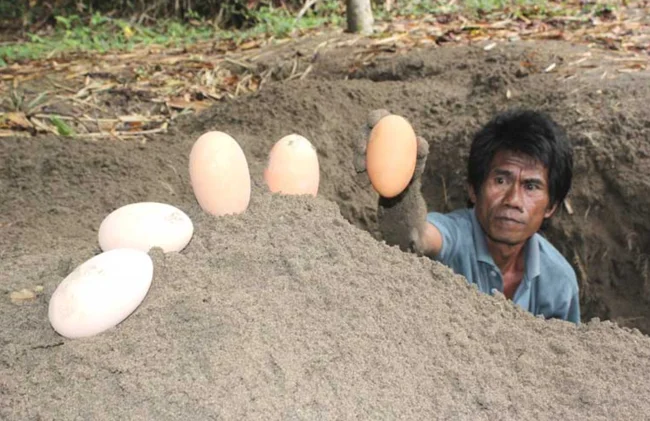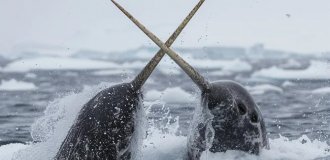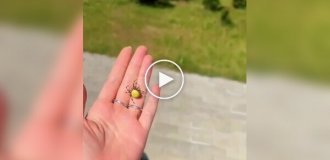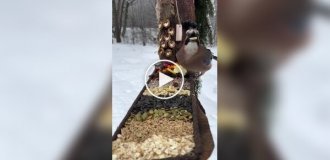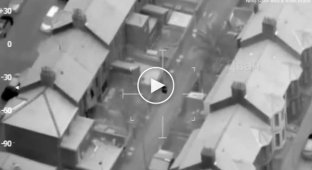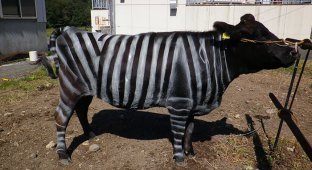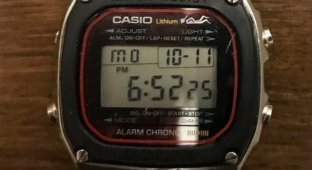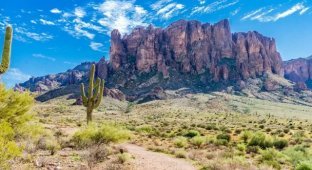Bake their children in a volcano: unusual monogamous birds maleo (10 photos)
It is no secret that hardening increases immunity and helps the body adapt to environmental conditions. Moreover, the maximum result is achieved by those who carry out strengthening procedures in early childhood. 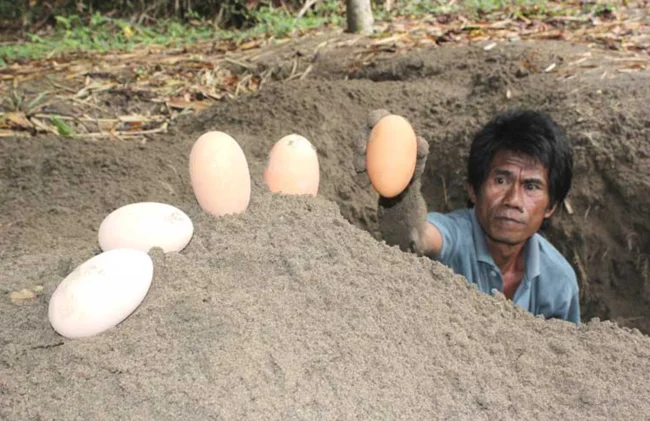
And if people prefer air baths, contrast showers, rubbing and dousing with cold water, then the maleo - weed chickens from the big-legged family, approached this issue with particular originality. They "bake" their future chicks in a volcano... 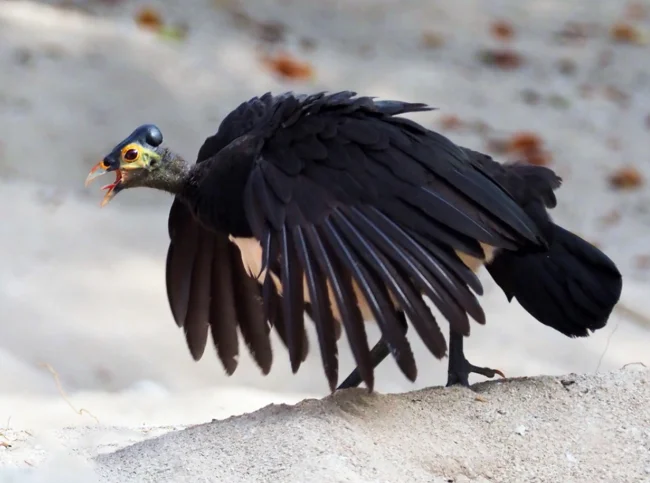
Of course, not everything is as dramatic as it seems at first glance. And although the weed hens do not throw eggs into the mouths of volcanoes, they do use the heat of volcanoes to bear their children. 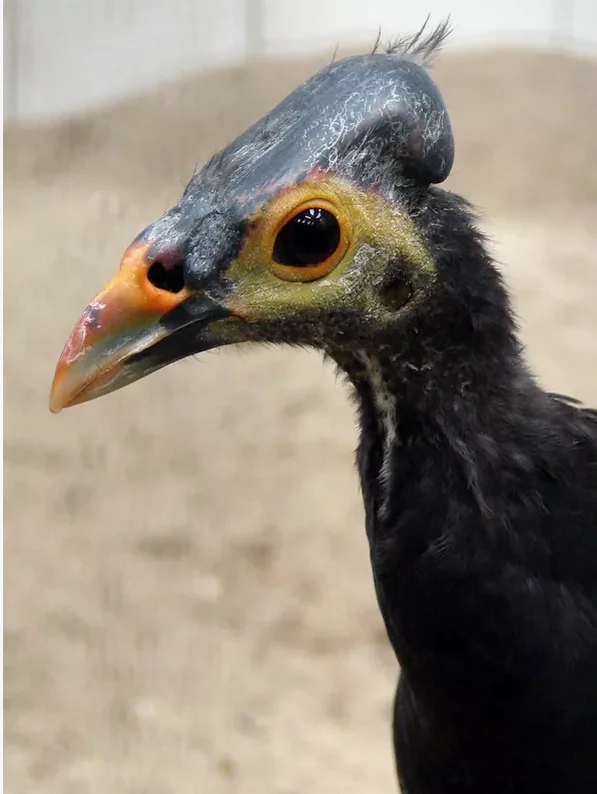
Maleos live on the island of Sulawesi, which is notable for its volcanoes and geothermal springs. The banks of the rivers here are covered with hot black volcanic sand. It is this, as well as geothermal energy, that the birds use as a natural incubator. 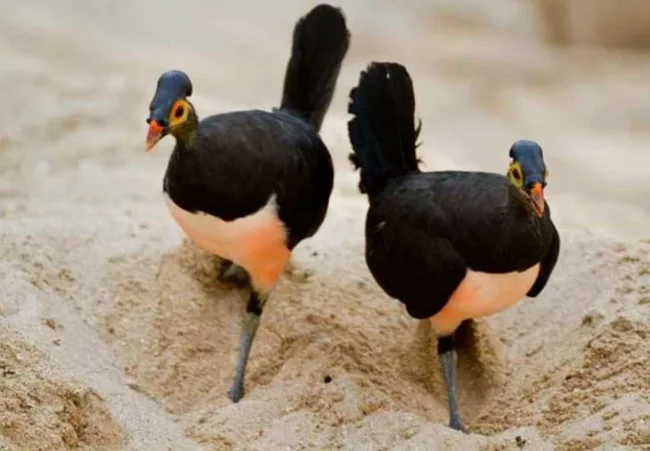
Maleos live in tropical forests. They are manogamous and form a pair for life. But what is noteworthy is that these birds do not participate in the upbringing of their offspring. When a dry period sets in on the island, the weed hens head to the coast in pairs. To find a suitable place to lay eggs, they will have to cover several dozen kilometers. Having chosen a section of dry beach, they begin to build a nest. Although a hole in the sand 40 - 100 cm deep can only be called a nest with a big stretch. 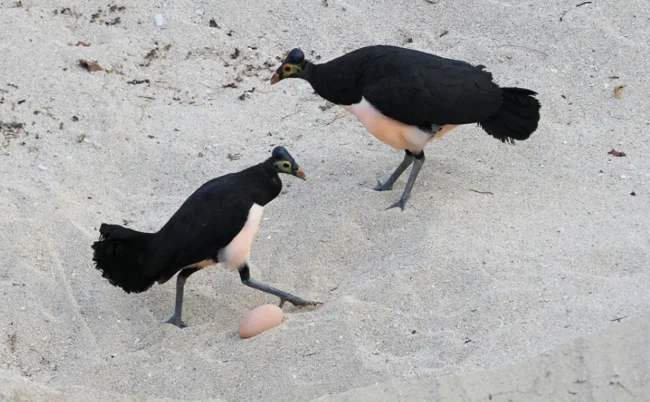
The eggs of the maleo are very large, about 5 times larger than those of a domestic chicken. The big-legged ones themselves are no larger than broilers. The female lays only one egg in the hole. Her body is simply not able to accommodate more. Then the birds fill the hole with sand and leaves. This is where the parental duties of the weed hens end, and they go back into the jungle, leaving their future children to the mercy of fate. 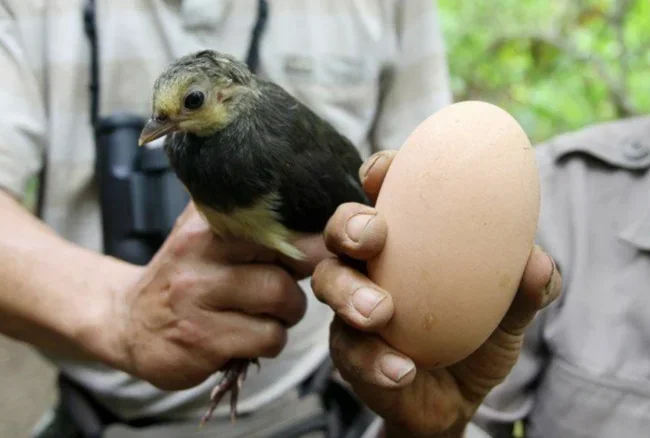
It is interesting that each family of weed hens has its own favorite place for laying eggs, where they come for several years. In an area up to 3 meters wide, there can be up to 500 holes.
As for the clutch, it is warmed by the sun and geothermal heat. The temperature of the sand can fluctuate between 33 and 38 degrees. This is enough for a successful outcome of the incubation period. Moreover, large eggs contain a large supply of nutrients necessary for the development of the embryo. Therefore, in about two and a half months, a fully formed chick will hatch from the egg, which, unlike a domestic chicken, has a full set of skills for independent life. 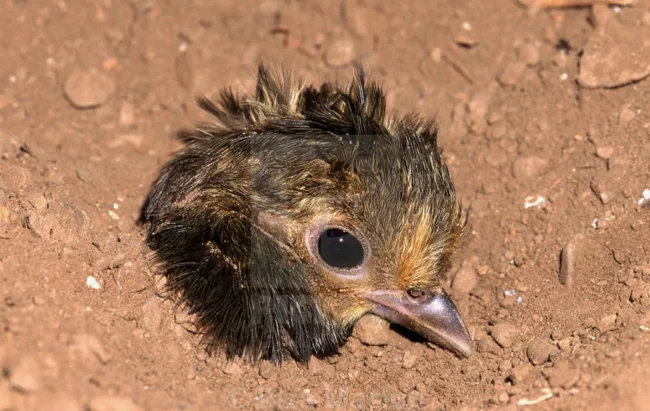
It will be able to easily break through the sand (being buried to a depth of 1 meter) and quickly overcome the many-kilometer road to the forest, finding food for itself and hiding from predators. Already on the first day of its life, the chick can fly, although it uses this skill only in extreme cases, to protect itself from danger. 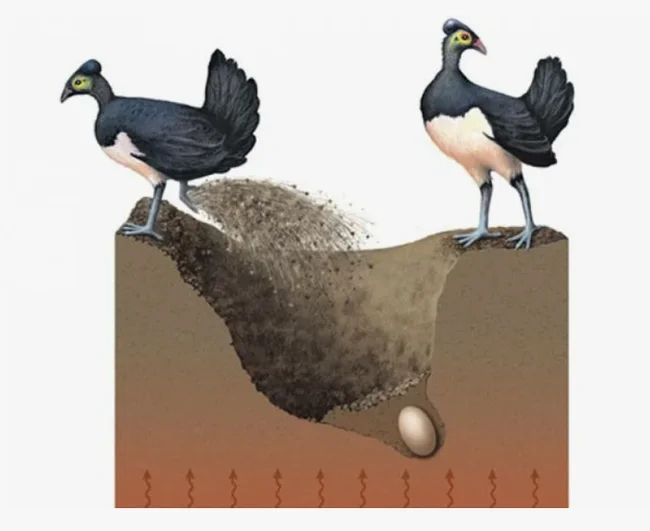
But the maleo chick will never know its parents. Perhaps nature itself suggested such an amazing life strategy to the maleo. Parents do not need to adhere to strict breeding rules, warm the clutch for months, and then feed the helpless chicks and teach them the intricacies of life. The birds only need to get to the coast, find a place warmed by geothermal energy, prepare a hole and lay an egg. And then nature will do everything itself. 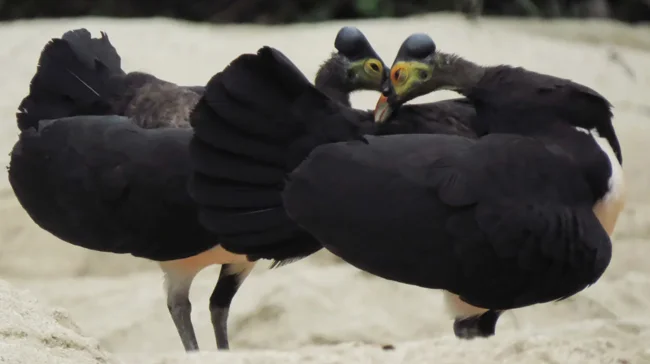
And despite the fact that the maleos seem to avoid fulfilling their parental duties, such a life tactic seems to be a brilliant solution of nature. After all, in addition to the fact that the offspring of the weed hens are created safe conditions for birth, the chicks are born very strong, hardened, fully adapted to the habitat. And this is an important factor, especially in the wild. 